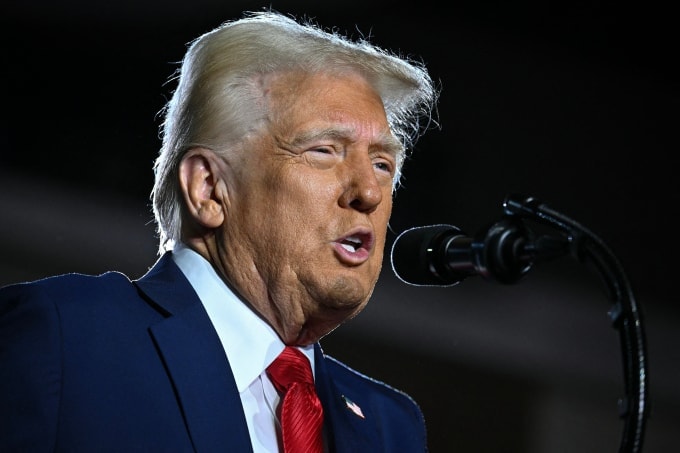President Trump announced sanctions against Colombia, including increased import tariffs, after Bogota refused to accept two flights to deport migrants.

US President Donald Trump announced on January 26 (local time) that he would impose a 25% tariff on Colombian goods, which would increase to 50% within a week. He would also impose a travel ban, immediately revoke visas of Colombian government officials and "supporters" of President Gustavo Petro, and increase surveillance of Colombian citizens at airports.
"These measures are just the beginning. We will not allow the Colombian government to violate its legal obligations to accept and return the criminals it forces into the United States," Trump wrote on the social network Truth Social.
The US president also announced emergency sanctions against Colombia's treasury, banks and financial sector. He will also direct increased border controls on Colombian citizens and goods.
Responding to the US move, Colombian President Gustavo Petro initially announced that he would impose a 50% tariff on US goods, but later said that he had instructed the Foreign Trade Minister to increase tariffs on imports from the US to 25%.
The United States is Colombia's largest trading partner, largely due to a 2006 free trade agreement, with two-way trade worth $33.8 billion in 2023, with the United States posting a trade surplus of $1.6 billion. The United States' largest imports from Colombia during the year were crude oil, gold, coffee, and rose bushes.
Colombia is one of the United States' closest allies and its third largest trading partner in Latin America.
Mr Trump's move came after President Petro objected to the US mobilizing military aircraft to deport migrants, refusing to allow such flights into Colombian airspace.
"The United States cannot treat Colombian migrants like criminals," President Petro wrote on social network X on January 26, adding that flights would only be accepted after Washington created a process that would ensure "respectful treatment" of migrants.
A US official said Colombia had turned away two military planes carrying about 160 people. US Secretary of State Marco Rubio said the US would “no longer be deceived or taken advantage of”, saying President Petro had granted permission for the flights but then revoked them while the planes were en route to Colombia.
Petro said he was willing to accept US civilian flights carrying deported migrants, as long as they were not treated “like criminals”. The Colombian government also announced that it would send a presidential plane to the US to “respectfully” receive the migrants on the flight rejected by Bogota.
Since his 2024 presidential campaign, Mr. Trump has repeatedly vowed to deport illegal immigrants. The US President recently said he would deport people with previous criminal records and claimed the campaign was going well.
At least three US deportation flights have landed in Guatemala. The Trump administration is using both commercial and military aircraft for the operation. Images released last week showed people with their hands and feet shackled and shackled around their waists before boarding the deportation flights.
Brazil’s foreign ministry said it would ask the US government to explain the “mistreatment” of its citizens. Mexico also refused to let such a flight land on January 24.
LA (synthesis)